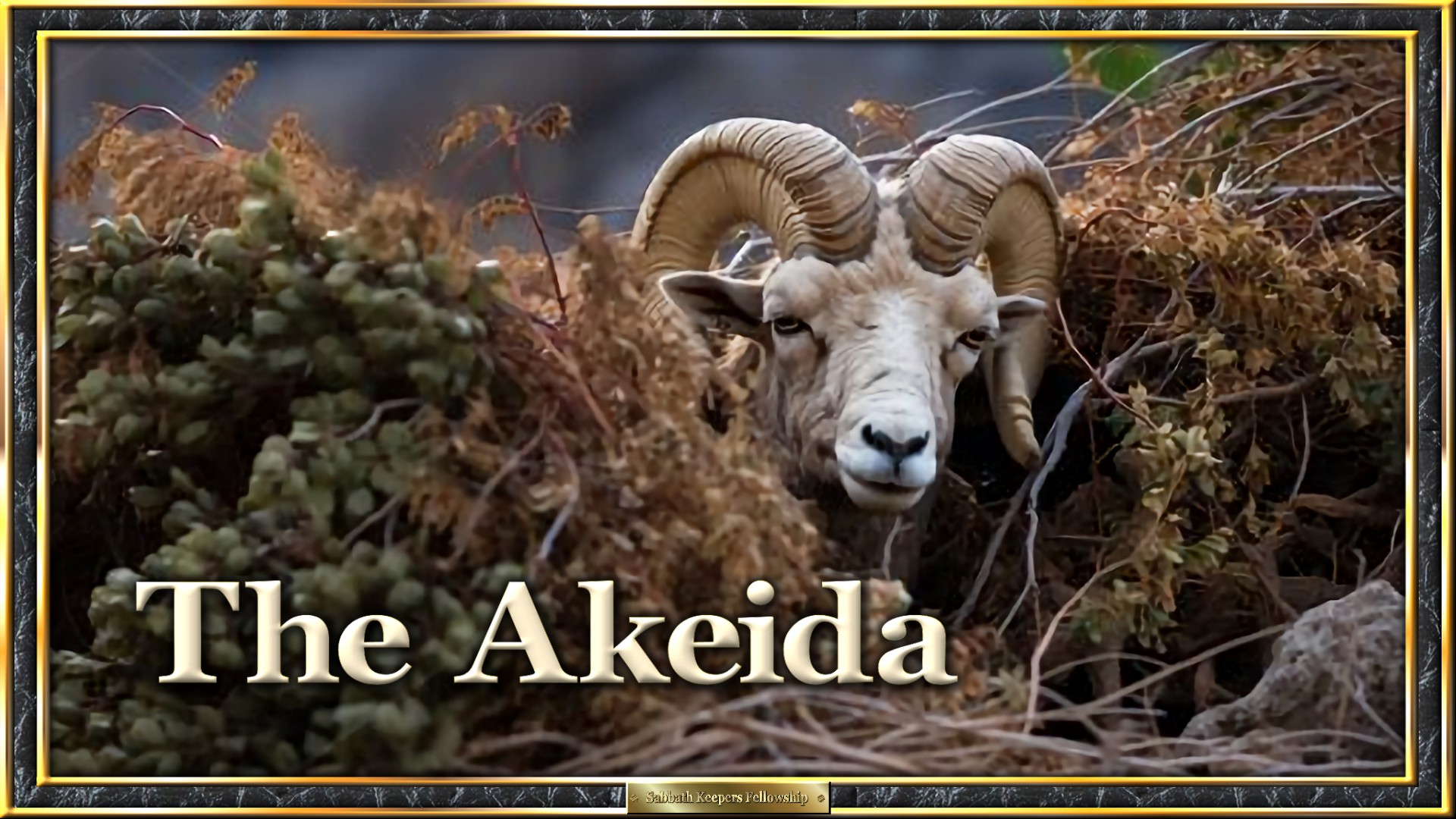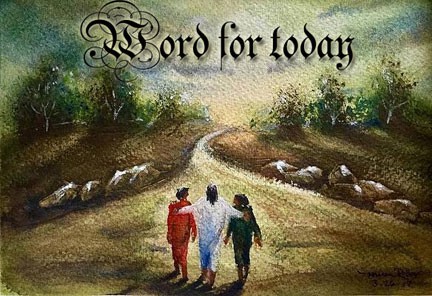Watch
Events
Articles
Market
More
Shalom, friends,
We invite you to join us live on YouTube at 3:30pm Central Time on this Sabbath afternoon, 11/08/2025, for scripture study and prayers.
The Torah portion for this week is called "Vayyeira", which covers B’reishyth (Gen.) 18:1-22:24
Read the portion beforehand, and be ready with your questions, comments and prayer requests.
Join us on YouTube at:
Many of our articles can be found in the library page of our website at:
Get our latest updates on our YouTube channel at:



FROM THIS WEEK’S TORAH PORTION – VAYYEIRA:
The Akeida (The Binding)
“And it came to be after these events that Elohim tried Avraham, and said to him, ‘Avraham!’ And he said, ‘Here I am.’ And He said, ‘Take your son, now, your only son Yitschaq, whom you love, and go to the land of Moriyah, and offer him there as an ascending offering on one of the mountains which I command you.’ And Avraham rose early in the morning and saddled his donkey, and took two of his young men with him, and Yitschaq his son. And he split the wood for the ascending offering, and arose and went to the place which Elohim had commanded him. And on the third day Avraham lifted his eyes and saw the place from a distance. So Avraham said to his young men, ‘Stay here with the donkey while the boy and I go over there and worship, and come back to you.’ And Avraham took the wood of the ascending offering and laid it on Yitschaq his son. And he took the fire in his hand, and a knife, and the two of them went together. And Yitschaq spoke to Avraham his father and said, ‘My father!’ And he said, ‘Here I am, my son.’ And he said, ‘See, the fire and the wood! But where is the lamb for an ascending offering?’ And Avraham said, ‘My son, Elohim does provide for Himself the lamb for an ascending offering.’ And the two of them went together. And they came to the place which Elohim had commanded him, and Avraham built an altar there and placed the wood in order. And he bound Yitschaq his son and laid him on the altar, upon the wood. And Avraham stretched out his hand and took the knife to slay his son, but the Messenger of YHWH called to him from the heavens and said, ‘Avraham, Avraham!’ And he said, ‘Here I am.’ And He said, ‘Do not lay your hand on the boy, nor touch him. For now I know that you fear Elohim, seeing you have not withheld your son, your only son, from Me.’ And Avraham lifted his eyes and looked and saw behind him a ram caught in a bush by its horns, and Avraham went and took the ram and offered it up for an ascending offering instead of his son. And Avraham called the name of the place, YHWH Yireh, as it is said to this day, ‘On the mountain YHWH provides.’ And the Messenger of YHWH called to Avraham a second time from the heavens, and said, ‘By Myself I have sworn, declares YHWH, because you have done this, and have not withheld your son, your only son, that I shall certainly bless you, and I shall certainly increase your seed as the stars of the heavens and as the sand which is on the seashore, and let your seed possess the gate of their enemies. And in your seed all the nations of the earth shall be blessed, because you have obeyed My voice.’”




Ancient (and not-so-ancient) herders were nomads, but they didn't move randomly. They guided their herds on regular circuits of pastureland. When one area was grazed down, they moved on to the next, mimicking the behavior of wild herds. Even among domesticated herds, animals are driven by instinct to continually return to the same pastures.
Herders couldn't break camp and move on to anywhere they wanted; there were cities, farms, and even ranches that had to be respected. Even so, they often competed with each other for access to grazing and water, sometimes violently. This is the background for the conflict and negotiations between King Abimelech and Father Abraham in Genesis 20.



Besides, she is indeed my sister, the daughter of my father though not the daughter of my mother, and she became my wife.
Genesis 20:12 ESV
This relationship isn't necessarily what it sounds like to modern Westerners. There are several ways that Sarah could have been Abraham's sister, some of which would not have been considered incest at the time, and one of which would be very normal.
*Terah had multiple wives and Sarah was literally his daughter by one of his other wives.
*Sarah was Terah’s granddaughter through one of Abraham’s brothers.
*Sarah was a slave purchased by Terah as a wife for Abraham, in which case Torah says she must be treated like a daughter
I think she most likely was Abraham's half-sister, but such a marriage would not have been a problem yet since the human genome had not deteriorated to the point where it would need to be forbidden.



110425 / 12th day of the 8th month 5786
WORD FOR TODAY “to those who are not HIS people”: Hos 2:23 "I will sow her for Myself in the land. I will also have compassion on her who had not obtained compassion, And I will say to those who were not My people, 'You are My people!' And they will say, 'You are my God!'"
WISDOM FOR TODAY: Pro 20:27 The spirit of man is the lamp of the LORD, Searching all the innermost parts of his being.
Ask the LORD how you can serve HIM better
www.BGMCTV.org




In the lesson of Balaam, he receives this vision. Numbers 24:8 —9, “God brought him out of Egypt with strength like a wild ox, to devour hostile nations and crush their bones, to pierce them with arrows. He crouches, he lies down like a lion; like a lioness, who dares to rouse him? Blessed are those who bless you and cursed are those who curse you.”” There will always be a small number of Abraham’s children who will choose evil, we should not judge all of Israel according to the deeds of the minority, we bless the majority.


